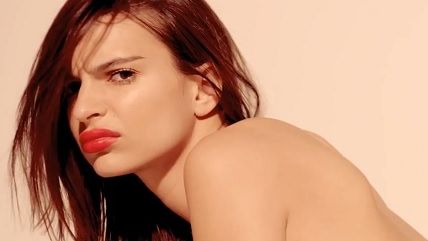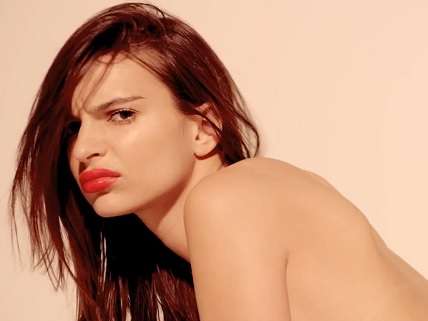Blurred Lines: Prepare for Endless Frivolous Copyright Lawsuits
What Pandora's box of litigation did the ruling in favor of Marvin Gaye's estate in the "Blurred Lines" lawsuit open?


The Internet appeared to rejoice that Pharrell Williams and Robin Thicke lost their lawsuit to the estate of Marvin Gaye over alleged copyright infringements in their mega hit song "Blurred Lines." It's not that the notoriously copyright-unfriendly Internet culture found religion on intellectual property privileges but that the Internet doesn't seem to like Robin Thicke. Fair enough. But as a number of commentators have noted, it's a silly reason to support such an awful ruling. And that ruling is awful even if you believe in relatively expansive intellectual property rights because it wasn't based on any copyright Marvin Gaye's estate owns on paper.
"Blurred Lines" is a 2013 pop song written by record producer Pharrell Williams, R&B singer Robin Thicke, and rapper T.I., but, as testimony in the copyright trial revealed, mostly by Williams, who has become a veritable hits maker in his career of 20+ years. The song does sound similar to "Got to Give it Up," the 1977 Marvin Gaye disco hit. You can listen to a "mash up" here, which lines up and exploits some of the similarities. The important point is that many of the elements that give "Blurred Lines" and "Got to Give It Up" a similar "sound"—the cow bell, the keyboard, the falsetto—are not copyrighted. Gaye submitted only the sheet music for copyright, not because he didn't have the foresight but because it would be ridiculous to claim ownership on musical elements that were in use long before Marvin Gaye entered the scene. The Gaye family's original claim was that the bass line in "Blurred Lines" (totally different from the one in "Got to Give you Up") and the "defining funk of the cowbell accents" were copied. They weren't, as Joe Bennett explains.
Williams said this on the witness stand, insisting "Blurred Lines" captured the "feel" of an artist and musical period Williams admired, but that doing so wasn't a copyright infringement. Can you imagine Bob Dylan suing Stealers Wheel because a lot of people mistake "Stuck in the Middle With You" for a Dylan song? Or Bruce Springsteen suing the guy who did "Walking on Memphis"? Does Biggie Smalls' estate now have stronger grounds if it chooses to sue Jay-Z? Unlike a bevy of contemporary pop songs that share the same four-chord progression, "Blurred Lines" relied neither on that progression nor on any progression recognizable in "Got to Give it Up." It didn't share any of the same notes or lyrics. The jury's ruling was based on a shared "sound" or "feel."
Already Gaye's daughter has said she agrees with online commentary that another Pharrell Williams hit, "Happy," sounds similar to the Gaye song "Ain't That Peculiar." How many elements of a dance song will the Gaye estate end up claiming as their intellectual property? The songs sound a lot less similar than "Blurred Lines" and "Got to Give It Up," but hit songs, by virtue of being wildly popular, will end up sometimes sharing some elements with songs that have been hits before. Hence the popularity of the four chord progression. The first time I heard Williams' "Come Get It Bae" on the radio I thought it sounded a little like a Katalyst song I hadn't listened to in years. They both have clapping and a female vocalist.
The "Blurred Lines" decision opens up the hip hop songbook, and really any contemporary musical piece, for a renewed look at possible copyright infringements of popular songs of days past. This is not the first legal decision that could have a profound effect on contemporary music. In 1991 a district court in New York ruled in Grand Upright Music vs. Warner Brothers Records that the rapper Biz Markie infringed on the copyright to Gilbert O'Sullivan's "Alone Again (Naturally)" by sampling it in "Alone Again." As Chris Richards notes at The Washington Post, that decision made albums like Public Enemy's It Takes a Nation of Millions to Hold Us Back, the Beastie Boys' Paul's Boutique, and De La Soul's 3 Feet High and Rising impossible to produce legally. Instead, mainstream hip-hop turned to paying copyright holders to lift the most recognizable portions of 70s and 80s song and graft them unaltered onto their own compositions. See pretty much anything Puff Daddy did in the 90s.
As Richards points outs, Williams began his musical career, as part of the duo The Neptunes with producer Timbaland, in the wake of this shift in hip-hop, helping to move it from the lazy reliance on recognizable sampling to the composition, with the aid of new technologies, of beats from scratch. Richards lightheartedly suggests in the overly-litigious future Williams may find artists he can sue for building on his sounds. Of course, that would be no better. Worse, the more lawsuits Williams, Timbaland, and other musicians spend money on, win or lose, the more staked they, and the companies that publish their work, will be in a legal environment that encourages liberal litigation and infringement claims.


Show Comments (193)